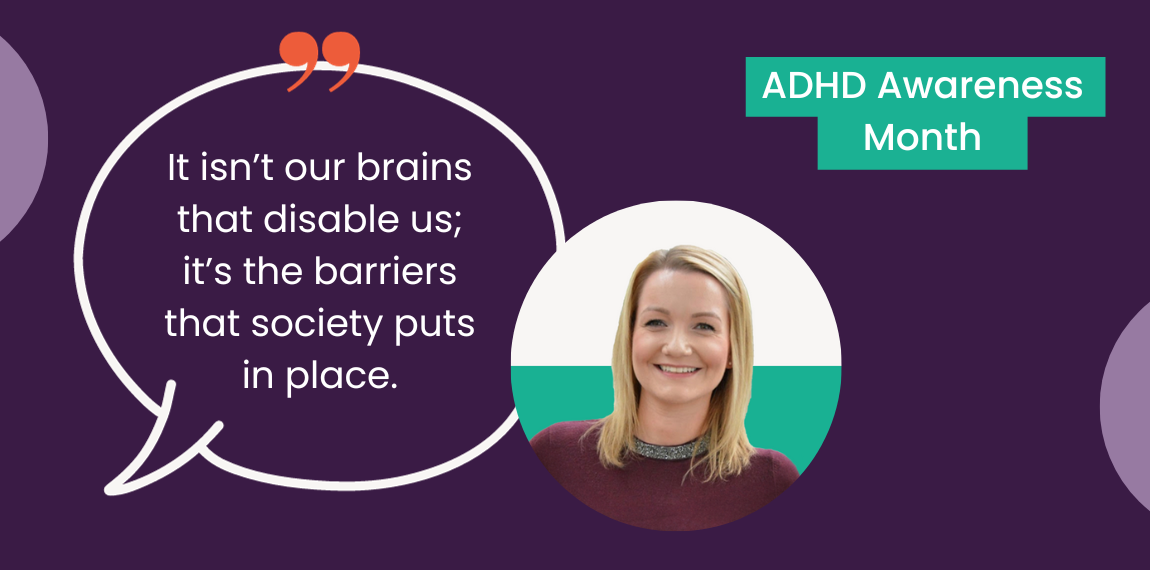Who We Are
Our Commitment

People with ADHD are more likely to be discriminated against, suffer from mental health issues and sadly, people with ADHD are more likely to take their own lives. MRI scans and decades of neuroscience research evidence that ADHD is indeed a neurological condition meaning that it’s the way the brain works, yet we still have government leaders and schools arguing that ADHD doesn’t exist or is down to poor parenting. The time for change is now and the time for educating people on basic human behaviours is now.
Attention Deficit Hyperactive Disorder is an inaccurate but current term for a type of neurodiversity – but why is it inaccurate? According to the DSM, which is the diagnostic criteria, ADHDers are inattentive, impulsive and hyperactive – but if you speak to somebody with ADHD they’ll tell you they actually have too much attention, a strong driven motor and a need for stimulation. There isn’t a deficit in our attention, we’re paying attention to everything all at once.
The Māori word for ADHD is Aroreretini meaning attention goes to many things; which is right! Think of ADHD like an operating system, like Autism. We’re all just humans, with different brains, and like computers we all have different operating systems to the way we think but we still function all the same.
In fact, there are 7 categories of ADHD – and any one person can have one, or all of them:
The more we learn and the more we recognise people with ADHD, the more we can support them. But as we learned, we realised how people are being failed in general life but also at work. One of the first steps is learning how ADHD actually affects people, and while everyone is different there are some common themes that stereotypically get linked to us that aren’t exactly true. For example:
A lot of ADHD information, treatment and support is hugely outdated and can often be negative. ADHD information used to focus on what the person CAN’T do, rather than what they can do.
ADHDers are people just like everyone else, we just experience the world differently, we feel things differently and our thoughts and feelings are more intense – it can be a beautiful thing. But what’s important to know is that it isn’t our brains that disable us; it’s the barriers that society puts in place that create the struggles people with ADHD face.
So I’m here to bust a few of the misconceptions you might have about us:
There are three things you can do so we can move from ADHD Awareness to Acceptance:
ADHD can be a great thing when you truly embrace it. I personally love my ADHD. It wasn’t until I understood, accepted and adjusted my approach to myself that the struggles became strengths.